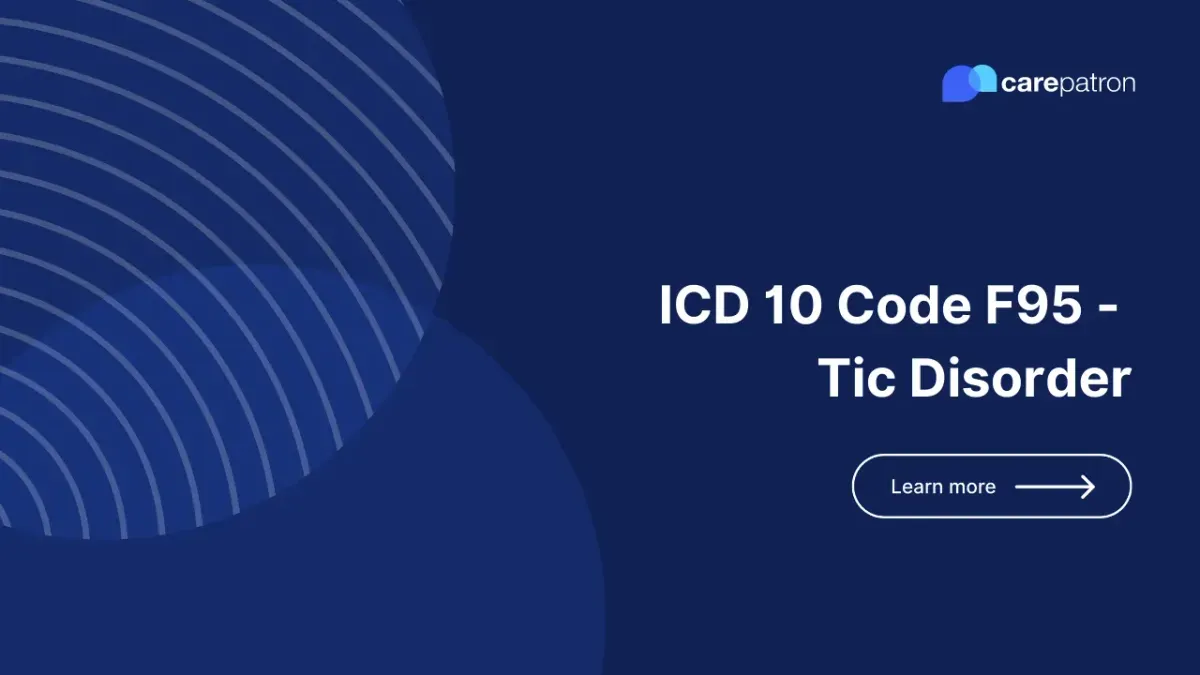
F95 – Tic Disorder
Learn more about the ICD-10-CM code F95 for tic disorders, including clinical descriptions, billability, related codes, synonyms, diagnosis, and treatment.
Use Code
EHR and practice management software
Get started for free
*No credit card required
Free
$0/usd
Unlimited clients
Telehealth
1GB of storage
Client portal text
Automated billing and online payments
